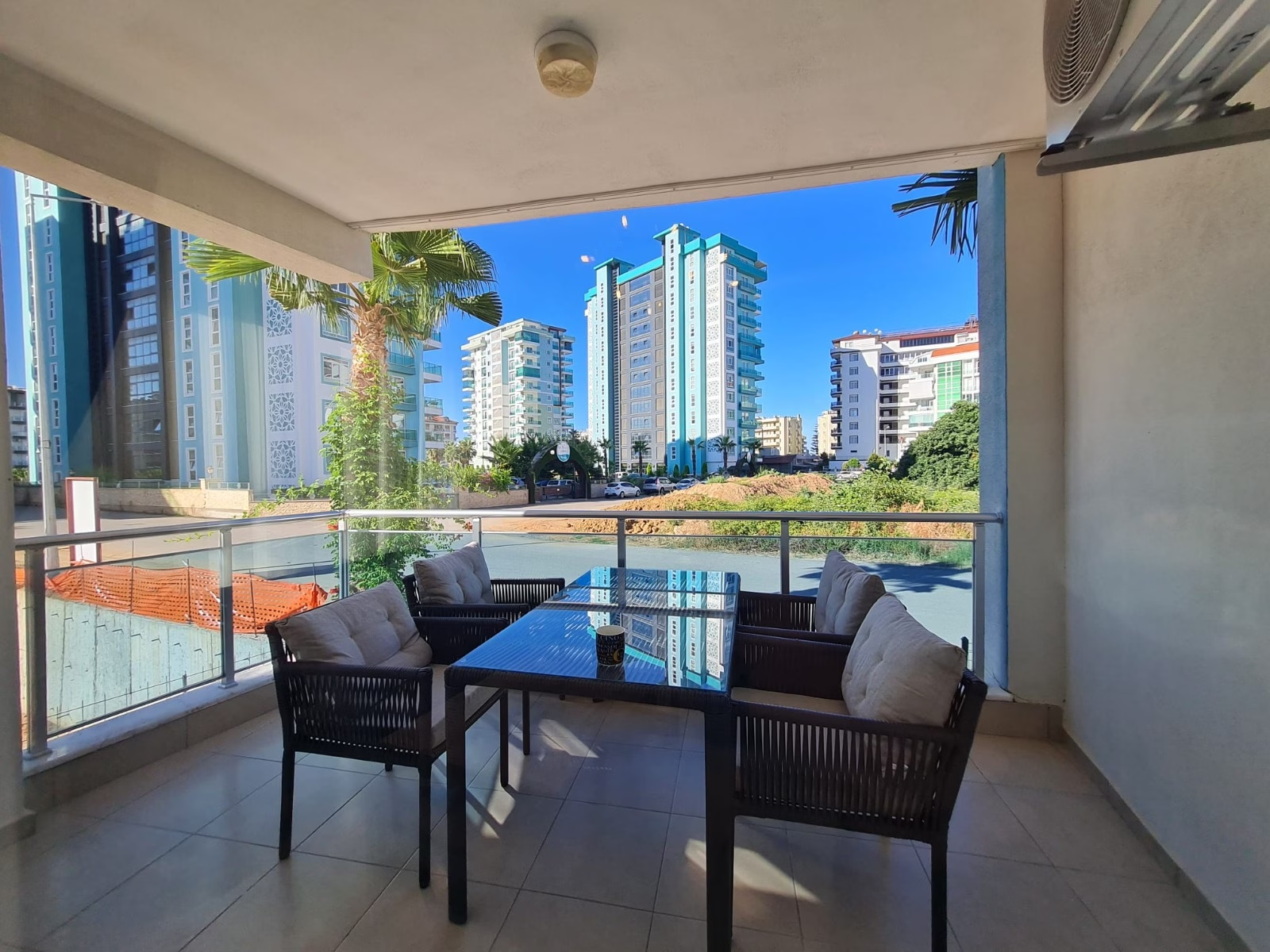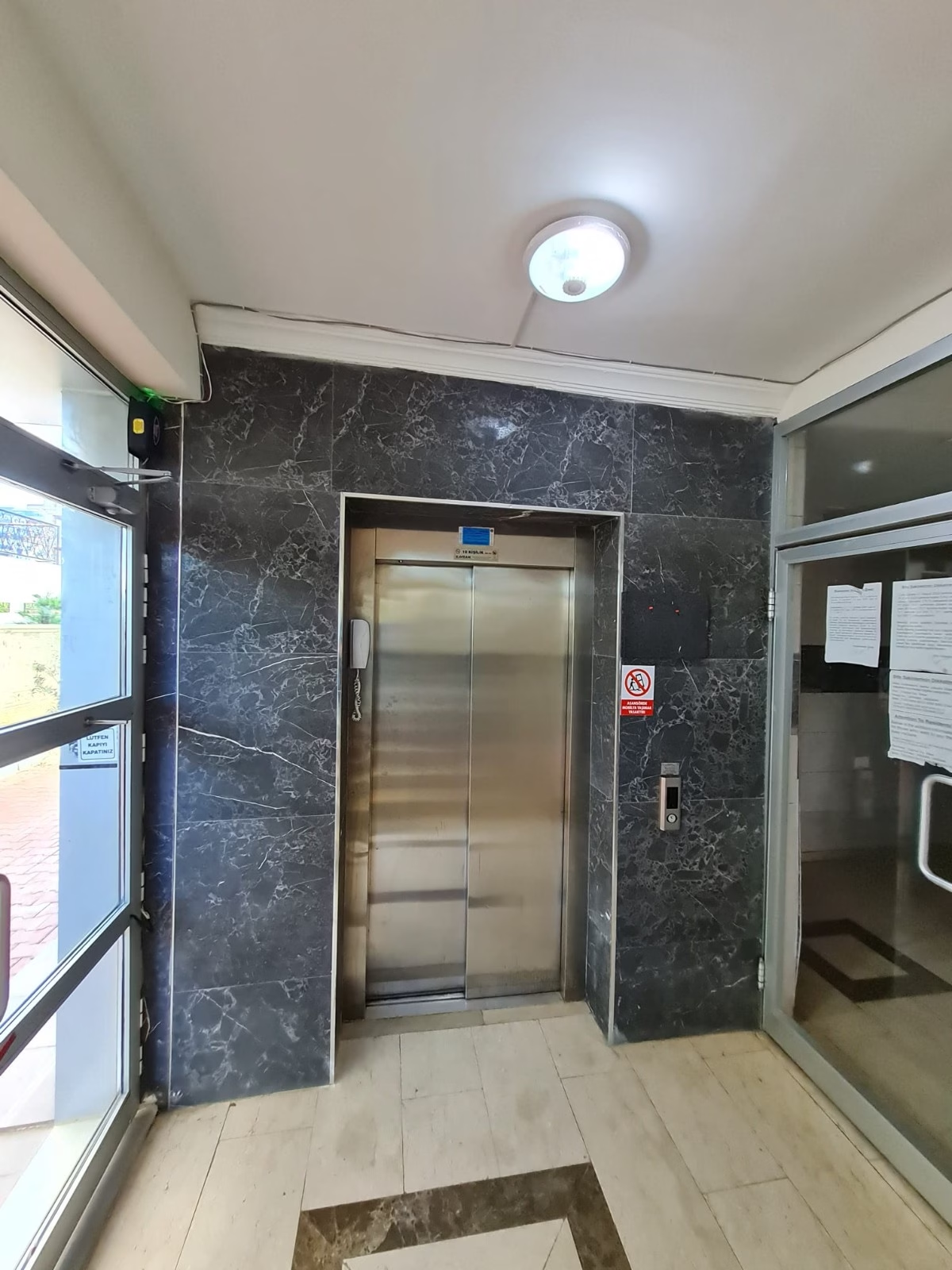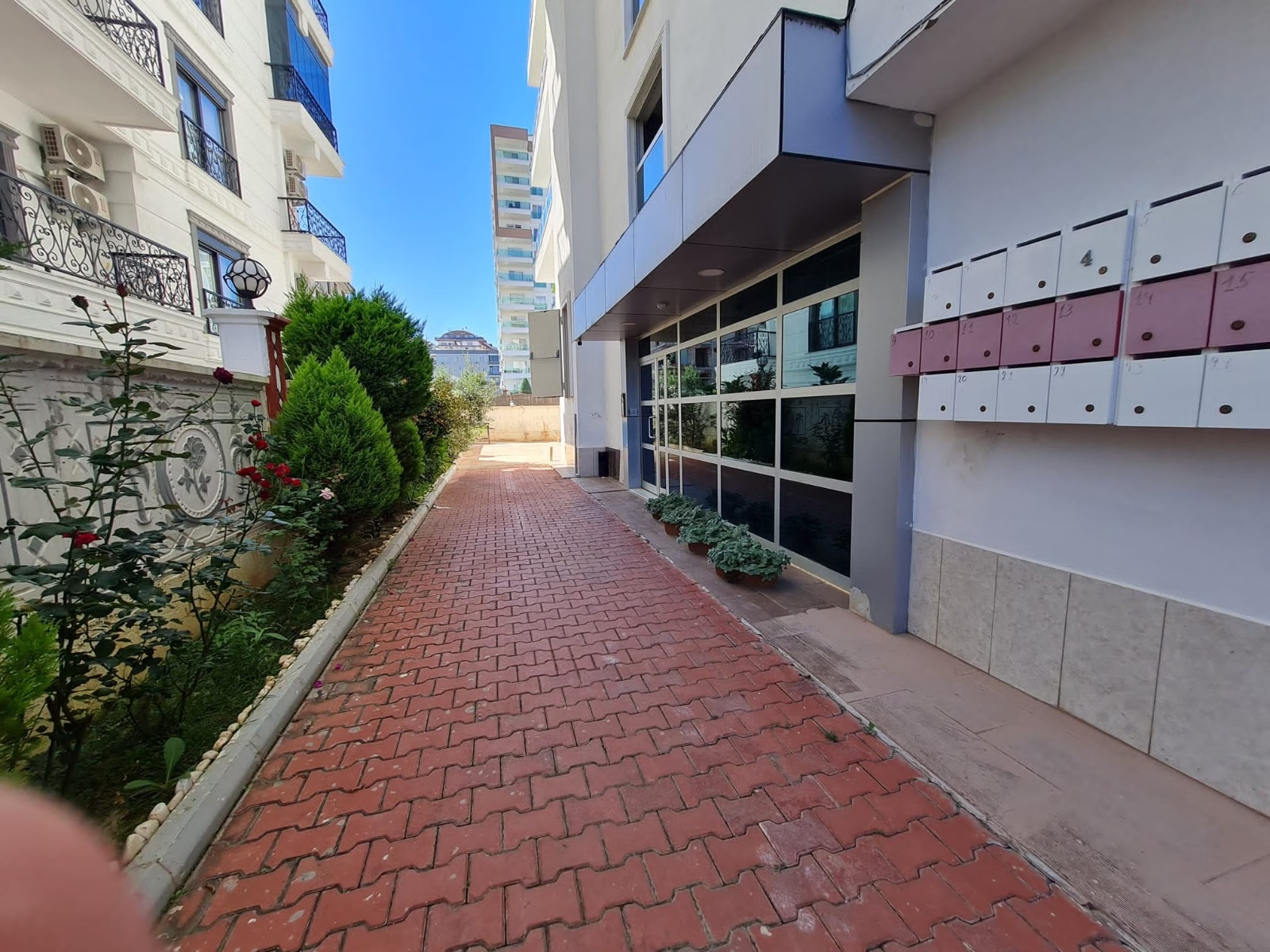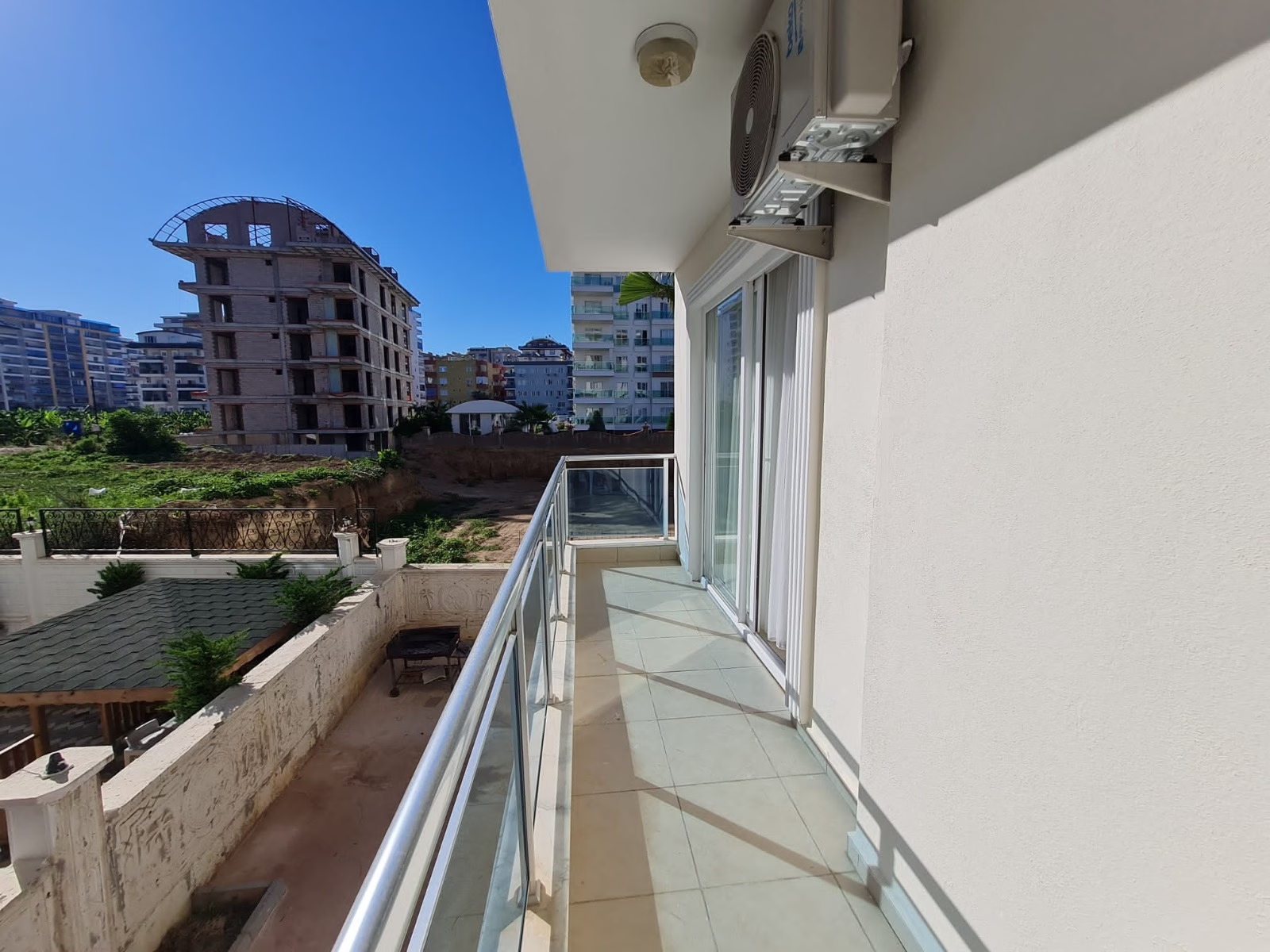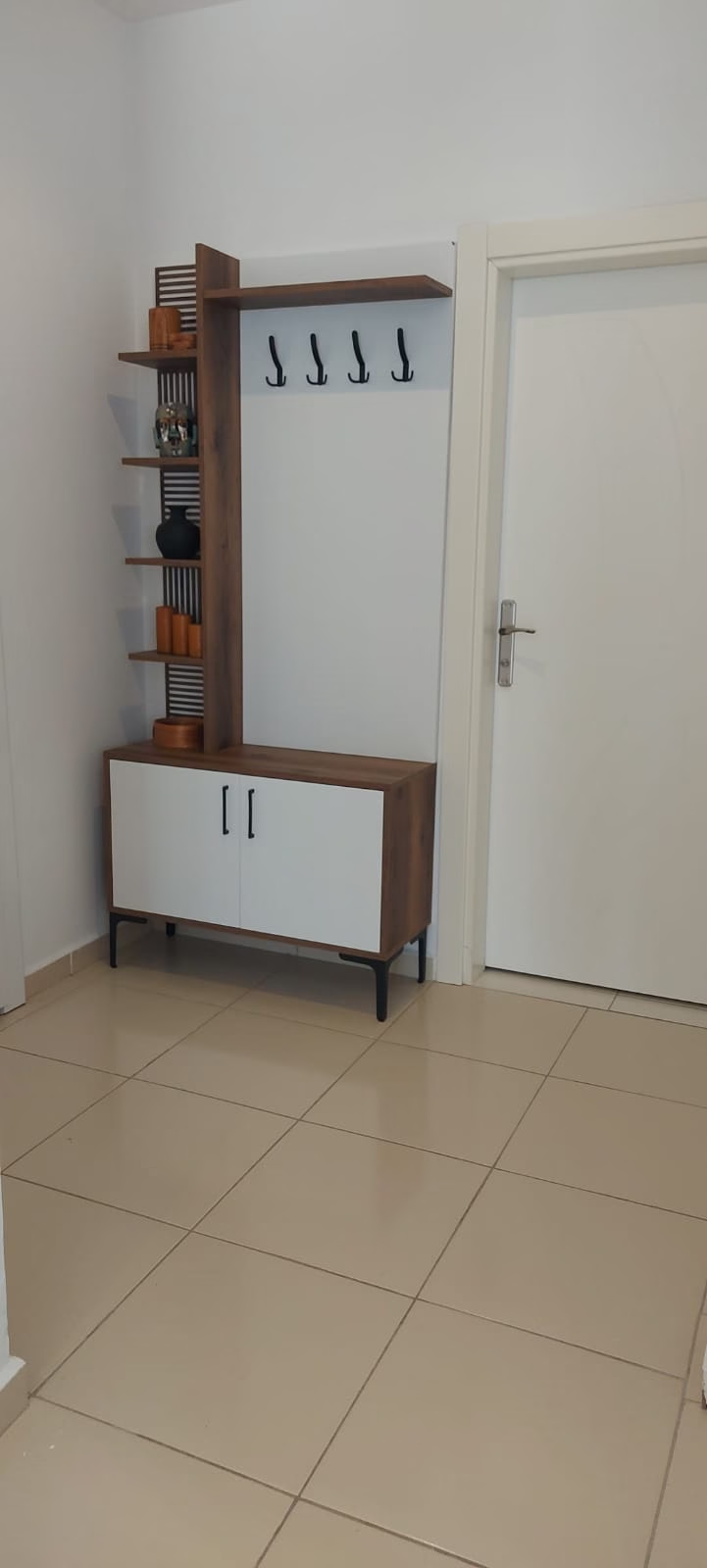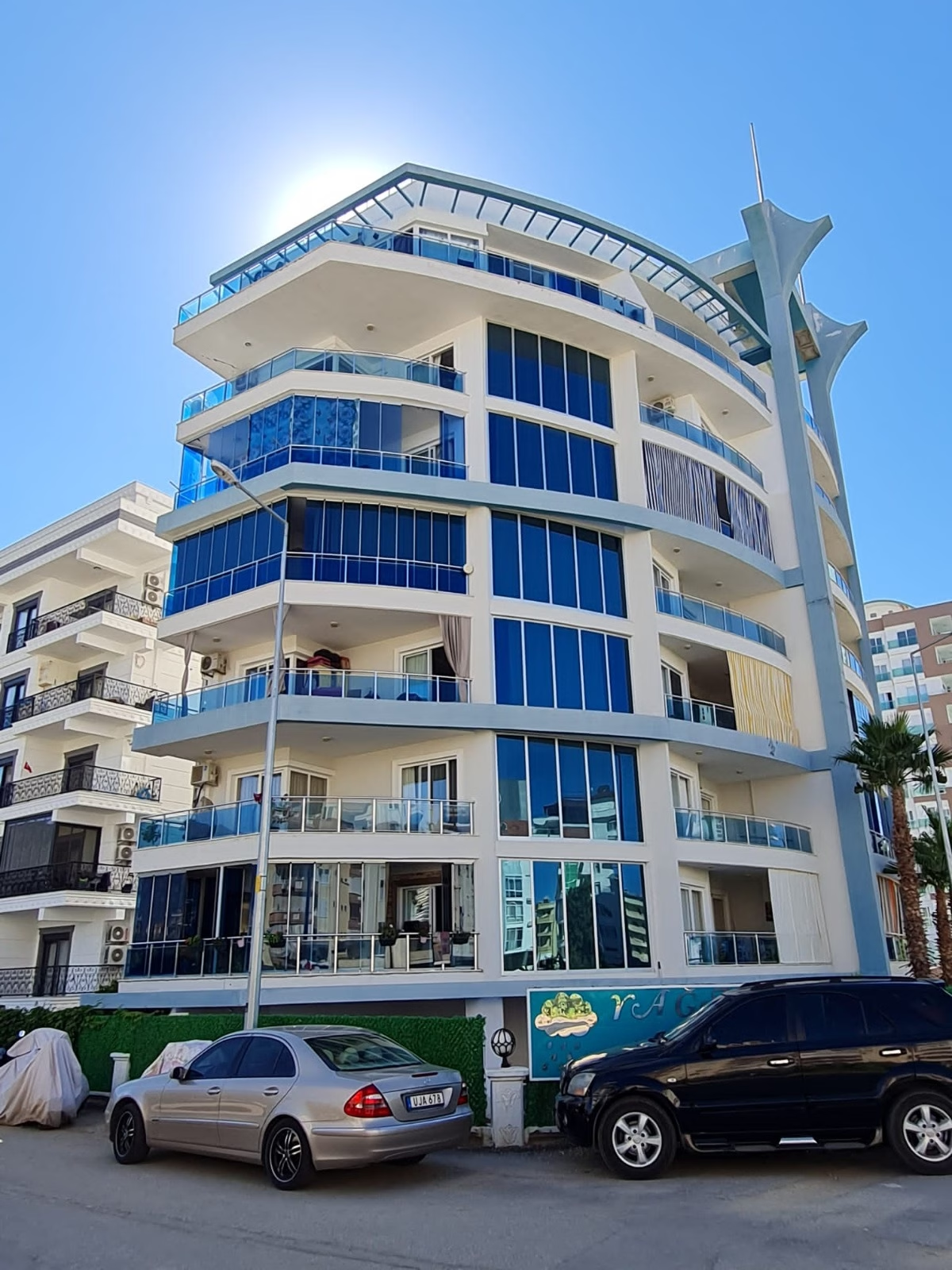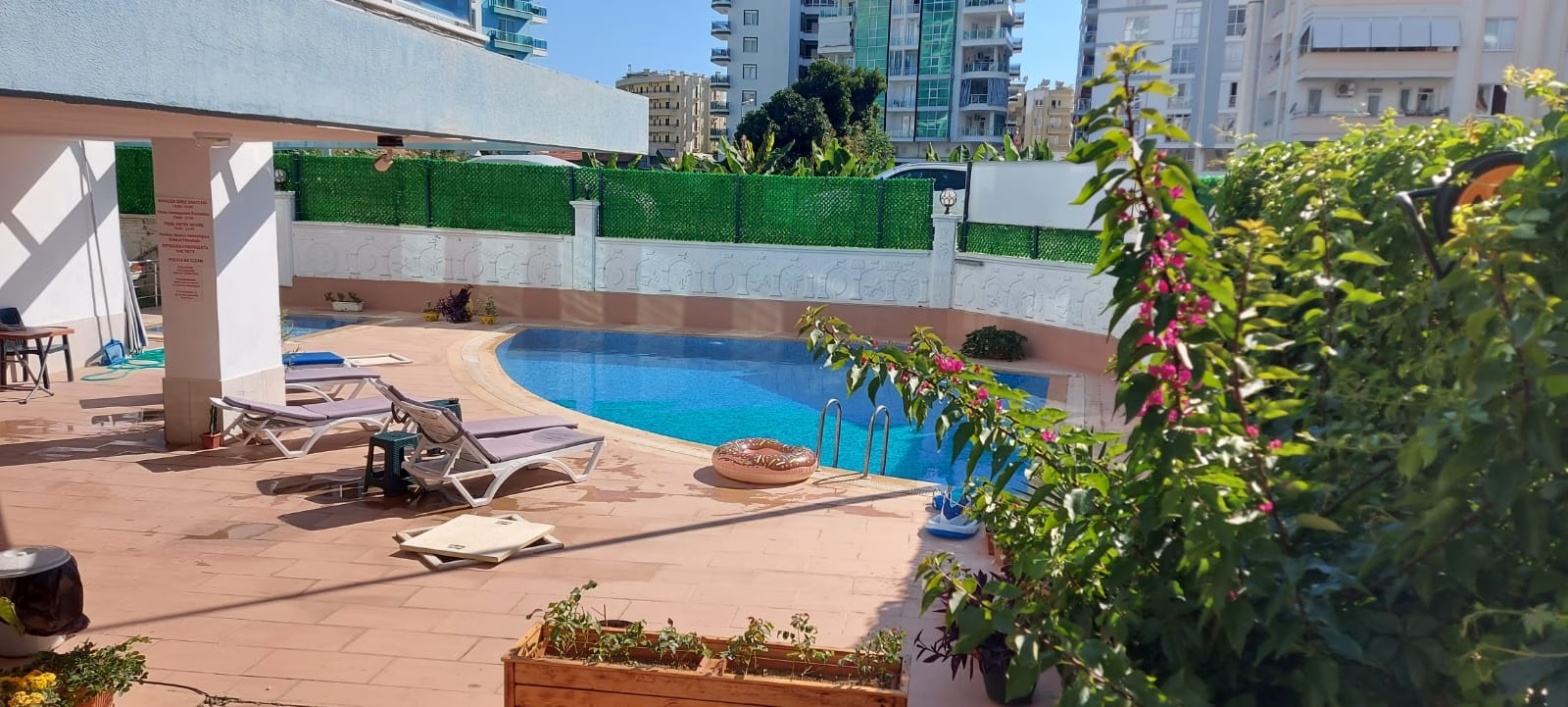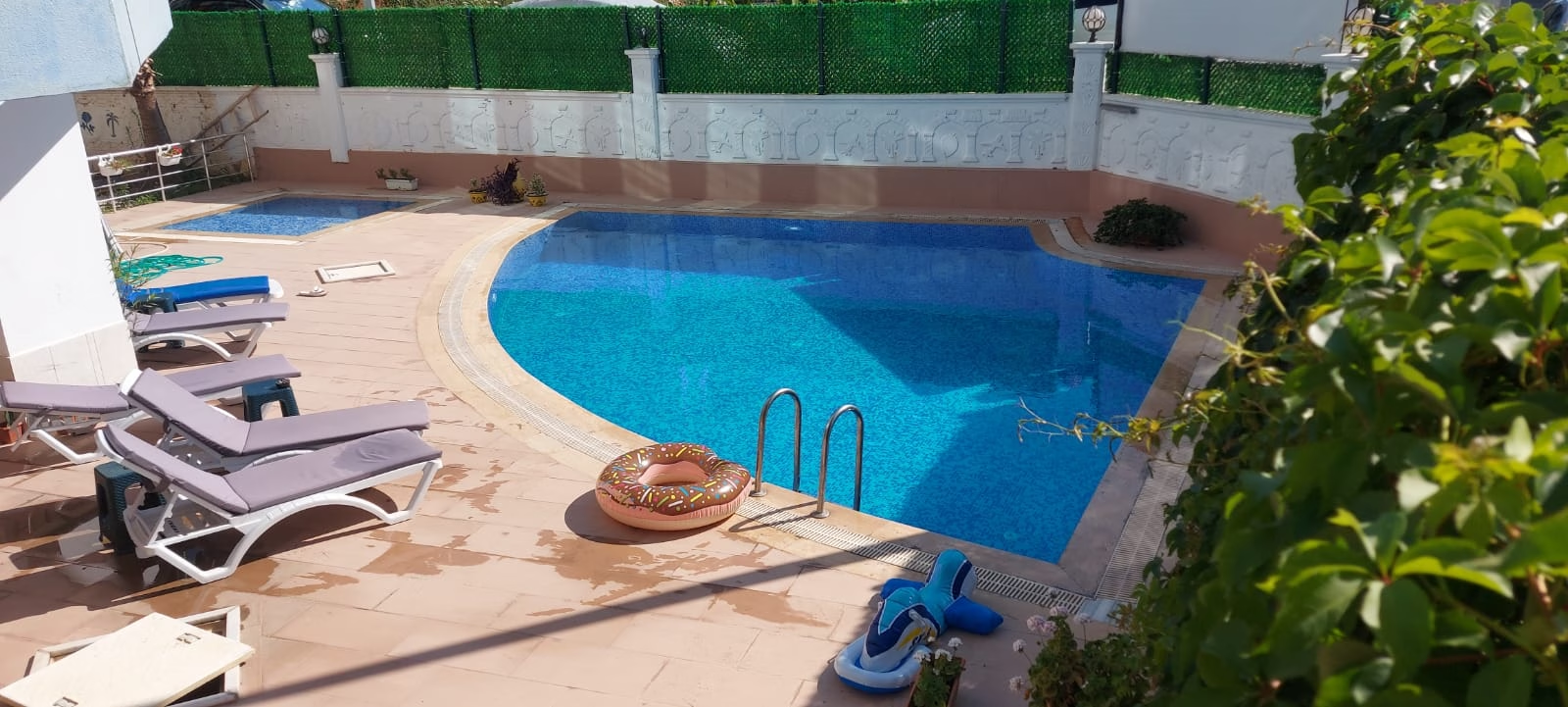Complete Guide to Buying Property in Turkey for a Foreigner (2026 Edition)
Introduction: Navigating the Turkish Real Estate Market in 2026
The Turkish real estate market in 2026 presents a landscape of compelling contrasts, offering significant opportunities for discerning foreign investors who can navigate its unique economic dynamics. The market remains exceptionally active, as evidenced by the robust sales figures from 2026, which saw 130,025 properties sold—a notable 17.6% increase compared to the same month in the previous year. This activity underscores a sustained and vigorous demand for Turkish property. However, the most critical feature of the current market is a central paradox: while nominal property prices in the local currency have surged, high domestic inflation has led to a stabilization or even a decrease in real property values when measured in hard currencies like the US Dollar or the Euro. This divergence creates a strategic window of opportunity for international buyers, whose purchasing power is significantly amplified.
Turkey’s enduring appeal for foreign investment is multi-faceted. The country’s strategic position at the crossroads of Europe and Asia provides unparalleled access to diverse markets and cultures, making it a geostrategic hub for business and lifestyle. For investors, the financial incentives are powerful. The potential for high returns on investment is a primary driver, with rental yields in major urban and coastal centers averaging between 5% and 9% annually. Furthermore, Turkey offers one of the world’s most popular and streamlined Citizenship by Investment (CBI) programs, providing a direct pathway to a Turkish passport through a qualifying real estate purchase. This combination of lifestyle appeal, economic potential, and accessibility to citizenship continues to attract a global cohort of buyers, from retirees and expatriates to high-net-worth individuals seeking a second passport.
The key to successfully capitalizing on these opportunities in 2026 lies in understanding the nuanced interplay between economic indicators. While headlines may focus on the dramatic year-over-year price increases in Turkish Lira (TRY)—such as the 29.6% nominal surge in Istanbul as of January 2026—a deeper analysis reveals a more complex reality. When adjusted for Turkey’s high inflation, real property prices in the same period actually experienced a decline of 8.8%. Compounded by the Turkish Lira’s significant annual depreciation against major foreign currencies, this economic environment creates a distinct “hard currency advantage”. For an investor converting dollars or euros into lira, their capital buys a significantly more valuable asset in real terms than it would have a year prior, despite the higher local currency price tag. This counterintuitive dynamic means that a market with soaring nominal prices can simultaneously function as a buyer’s market for those with foreign capital. Navigating this landscape requires a balanced approach, acknowledging both the immense potential and the critical importance of meticulous due diligence to mitigate risks associated with economic volatility and evolving regulations.

Chapter 1: The Legal Framework for Foreign Buyers: Rules of Engagement
Before embarking on a property purchase in Turkey, a foreign national must first understand the comprehensive legal framework that governs such transactions. Turkish law is designed to both attract foreign direct investment and maintain strict sovereign control over land ownership and capital flows. This dual objective is reflected in a series of well-defined rules, restrictions, and procedures that every potential buyer must navigate.
The Principle of Reciprocity and Eligible Nationalities
Historically, the ability of a foreigner to purchase property in Turkey was contingent on the principle of reciprocity—meaning a Turkish citizen had to be able to purchase property in the foreigner’s home country. This condition has been significantly liberalized, opening the market to citizens of most nations. Today, nationals from the majority of European Union countries, the United Kingdom, the Commonwealth of Independent States (CIS), the United States, Canada, and Gulf Cooperation Council (GCC) countries are eligible to purchase property in Turkey with relative ease.
However, some restrictions remain. The Turkish government maintains a list of countries whose citizens are not permitted to own real estate. As of 2026, this list includes Syria, Armenia, North Korea, Cuba, and Nigeria. It is imperative for potential buyers to verify their eligibility based on their nationality before proceeding with any transaction.
Fundamental Ownership Restrictions
While the market is broadly accessible, Turkish law imposes three fundamental and non-negotiable restrictions on foreign property ownership to safeguard national interests and prevent speculative over-concentration of land.
- The 30-Hectare Rule: A single foreign individual is prohibited from owning more than 30 hectares (approximately 74.1 acres) of real estate in total across the entire country. This national-level cap is designed to prevent the large-scale acquisition of Turkish land by any single foreign entity. While the Council of Ministers has the authority to grant exceptions for larger acquisitions, the 30-hectare limit applies to the vast majority of individual transactions.
- The 10% District Cap: Within any single administrative district (ilçe), the total area of land owned by all foreign nationals combined cannot exceed 10% of the district’s total privately-owned land area. This regulation is a strategic measure to maintain demographic balance and prevent foreign ownership from dominating any specific locality. The Land Registry and Cadastre Directorate automatically checks this limit during the title deed application process and will reject any sale that would breach the 10% threshold.
- Military and Security Zone Prohibitions: There is an absolute prohibition on foreign nationals acquiring property within designated military forbidden zones and security zones. This is a matter of national security, and the restriction is strictly enforced. In the past, this required a lengthy military clearance process. Today, this check is largely integrated and automated within the Land Registry’s systems, making the process more efficient but no less critical. Any property located within these restricted areas is legally unavailable for purchase by non-Turkish citizens.
The Mandatory Currency Exchange Rule (Döviz Alım Belgesi)
A critical procedural requirement introduced in 2022 is the mandatory currency exchange rule. All foreign buyers are legally required to sell the foreign currency equivalent of the purchase price to a bank in Turkey. In return, the bank issues a Foreign Exchange Purchase Certificate (Döviz Alım Belgesi or DAB). This official document certifies that the funds were legally converted into Turkish Lira through the Turkish banking system. The DAB is a non-negotiable prerequisite for the final title deed transfer and must be presented at the Land Registry Office.
This regulation serves multiple strategic purposes for the Turkish government. On the surface, it is a measure to ensure transparency and combat money laundering. More fundamentally, it is a powerful policy tool that compels the inflow of foreign hard currency directly into Turkey’s central banking system, thereby bolstering the country’s foreign currency reserves. This underscores the government’s active management of the investment landscape; a foreign buyer is not merely participating in a transaction but is also contributing to national monetary policy.
Inheritance Law for Foreigners
Foreign property owners must also be aware of Turkish inheritance law (Miras Hukuku). For immovable property located within Turkey’s borders, Turkish law governs its succession, irrespective of the deceased owner’s nationality or the laws of their home country.
In the absence of a legally valid will, the law dictates a statutory order of succession. The primary heirs are the surviving spouse and children. The spouse is typically entitled to one-quarter of the estate, with the remaining three-quarters being divided equally among the children. If there are no children, the spouse’s share increases, and other relatives like parents may become heirs.
While a will drafted in a foreign country can be recognized in Turkey, the process is often complex, time-consuming, and expensive. It requires official translation, notarization, and an apostille, followed by a formal recognition procedure in a Turkish court. To ensure one’s wishes are carried out smoothly and to avoid the default statutory distribution, it is highly advisable for foreign property owners to draft a separate, legally compliant will in Turkey with the assistance of a Turkish lawyer.
Chapter 2: A Step-by-Step Guide to the Property Purchase Process
The process of purchasing property in Turkey is systematic and well-defined, but it requires careful attention to detail, particularly for foreign buyers. Navigating the administrative and legal requirements efficiently is key to a secure and successful transaction. The journey can be broken down into three distinct phases: essential preparations, the transaction and due diligence, and finalization of ownership.
Phase 1: Essential Preparations
Before a buyer even begins viewing properties, several foundational steps must be completed to enable any future financial or legal transactions within Turkey.
Obtaining a Turkish Tax Identification Number (Vergi Numarası)
The Turkish Tax Identification Number is the cornerstone of any financial activity for a foreigner in Turkey. It is required for opening a bank account, registering a title deed, and setting up utility services. The process is remarkably straightforward and free of charge. A foreign national can obtain their tax number by visiting any local tax office (Vergi Dairesi) with their original valid passport and a photocopy. In recent years, an online application system has also been made available through the official Turkish Revenue Administration website, further simplifying the process. This number is typically issued immediately.
Clarifying the Foreigner’s ID Number (Yabancı Kimlik Numarası – YKN)
A common point of confusion for foreigners is the distinction between the Tax ID Number and the Foreigner’s ID Number (YKN). It is crucial to understand that these are two different identifiers. The Tax ID Number is for financial transactions. The YKN, on the other hand, is a personal identification number, similar to a national ID number for citizens, that is automatically assigned to any foreigner who is granted a Turkish residence permit.
Therefore, a foreigner does not apply for a YKN specifically for a property purchase. Instead, they will receive a YKN only after they have successfully purchased a qualifying property and their application for a residence permit has been approved. This distinction is important for managing expectations about the procedural timeline.
Opening a Turkish Bank Account
While not legally mandatory for the purchase itself (funds can be transferred directly), opening a local bank account is a practical necessity for a smooth transaction and for managing the property post-purchase. A Turkish bank account is essential for transferring the purchase funds, paying property taxes and fees, setting up automatic payments for utility bills, and managing rental income.
To open an account, a foreigner will typically need their original passport and their newly acquired Turkish Tax ID Number. While the process is generally straightforward, having a residence permit can significantly simplify it, as some banks may have stricter requirements for non-residents.
Phase 2: The Transaction and Due Diligence
Once the preparatory steps are complete, the buyer can proceed with selecting a property and formalizing the transaction. This phase is the most critical for risk mitigation and requires professional oversight.
Engaging Professionals: Finding a Reliable Agent and an Independent Lawyer
The single most important decision a foreign buyer will make is their choice of professional representation. It is highly recommended to engage two key professionals:
- A Reputable Real Estate Agent: A licensed and experienced local agent can provide invaluable market insights, access to a wider range of properties, and assistance with negotiations. However, buyers should be wary of unlicensed intermediaries or international agencies that may charge inflated commissions.
- An Independent Lawyer: This is non-negotiable for a secure transaction. The lawyer must be independent, meaning they have no professional or financial ties to the seller or the real estate agent. Their role is to protect the buyer’s interests exclusively by conducting thorough legal due diligence and reviewing all contracts. Relying on a lawyer provided by the seller or agent creates a significant conflict of interest and exposes the buyer to immense risk.
The Mandatory Appraisal Report (Ekspertiz Raporu)
The real estate appraisal report is a comprehensive valuation of the property conducted by an expert licensed by the Capital Markets Board of Turkey (SPK). This report serves two primary functions: it protects the buyer by providing an official, unbiased market value of the property, and it establishes the value upon which the 4% title deed transfer tax will be calculated.
A crucial update for 2026 is the change in legislation that occurred in June 2024. The appraisal report is no longer a mandatory requirement for all property sales to foreigners. This change was implemented to reduce the administrative burden and cost for smaller-scale investors, such as those buying holiday homes. However, the appraisal report remains absolutely compulsory for any foreigner purchasing property with the intention of applying for Turkish Citizenship by Investment. This is because the report is the sole mechanism for officially verifying that the property’s value meets the required $400,000 threshold. Furthermore, the authorities reserve the right to request an appraisal report for any transaction if they deem it necessary.
Even when not legally required, it is still highly advisable for all foreign buyers to commission an appraisal report for their own protection. The process typically takes 2-3 days, costs approximately 13,200 TRY, and the report is valid for three months from the date of issuance. The government’s decision to make this report optional for some while mandatory for CBI applicants demonstrates a strategic segmentation of the market. It streamlines the process for lifestyle buyers while applying stricter scrutiny to transactions that confer the significant benefit of citizenship.
Signing the Preliminary Contract and Paying the Deposit
Once a property is chosen and the price is agreed upon, the next step is to sign a preliminary sales agreement, often called a reservation contract (Ön Protokol), and pay a deposit to secure the property and take it off the market. The deposit is typically 5-10% of the purchase price.
This is a legally binding document, and it is vital that the buyer’s independent lawyer drafts or thoroughly reviews it before signing. The contract should clearly state all terms and conditions of the sale, including the agreed price, payment schedule, and completion date. Most importantly, it must include penalty clauses and clear conditions for the refund of the deposit, such as if the sale cannot proceed due to negative findings during the legal due diligence process (e.g., liens or permit issues on the property).
Phase 3: Finalization and Ownership
The final phase involves the official transfer of ownership and the completion of post-purchase administrative tasks.
The Title Deed (Tapu) Transfer
The official transfer of ownership is finalized only at the local Land Registry Office (Tapu ve Kadastro Genel Müdürlüğü). This is the most critical moment of the transaction. Both the buyer and the seller, or their legally appointed representatives holding a valid Power of Attorney, must be physically present.
If the foreign buyer does not speak Turkish, the presence of a certified sworn translator is legally required during the signing process to ensure the buyer fully understands the terms of the deed they are signing. Before the final signatures are affixed, all associated taxes and fees, including the 4% title deed transfer tax, must be paid. Once the transaction is complete, the buyer receives the official title deed (Tapu Senedi), which is registered in their name, making them the legal owner of the property.
Post-Purchase Formalities
After receiving the title deed, the new owner must complete a few final steps. This includes registering for utilities such as electricity, water, and gas in their name. This process typically requires presenting the new title deed, a passport, and compulsory earthquake insurance (DASK). The new owner should also register their address with the local municipality’s population office, which is an important step, especially if they plan to apply for a residence permit.
Chapter 3: The Complete Financial Breakdown: Budgeting for Your Turkish Property
A comprehensive understanding of the total cost of acquiring and owning property in Turkey is essential for effective financial planning. The final cost extends well beyond the advertised purchase price, encompassing a range of one-time taxes and fees as well as ongoing ownership expenses. Foreign buyers who fail to budget for these additional costs, which can amount to an additional 8-10% of the property’s value, often face unexpected financial strain.
One-Time Purchase Costs
These are the fees and taxes incurred during the acquisition process, payable at or before the final title deed transfer.
- Title Deed Transfer Tax (Tapu Harcı): This is the most significant transaction tax, set at 4% of the property’s value as declared on the official appraisal report. While Turkish law stipulates that this tax should be split equally between the buyer and the seller (2% each), common market practice often sees the buyer assuming the full 4% as part of the negotiated agreement.
- Value Added Tax (VAT / KDV): VAT is applicable primarily on the sale of new properties from a developer or construction company. The rate varies depending on the property’s size and classification, but for most residential properties under 150 square meters, the rate is1%. Luxury or larger properties may incur rates of 8% or 18%. Resale properties (those being sold by a previous private owner) are typically exempt from VAT. Importantly, foreign nationals who do not reside in Turkey may be eligible for a VAT exemption on their first property purchase, which can represent a significant saving.
- Legal Fees: Engaging an independent lawyer is a critical investment in security. Legal fees for overseeing the entire purchase process, including due diligence and contract review, typically amount to 1-2% of the purchase price, plus VAT.
- Real Estate Agent Commission: The standard commission, regulated by law, is 2% from the buyer and 2% from the seller, each subject to VAT. Foreign buyers should be cautious of international agencies that may attempt to charge significantly higher rates.
- Notary and Translation Fees: These are required for services such as preparing a Power of Attorney (if buying remotely), translating the buyer’s passport into Turkish, and hiring a sworn translator for the title deed transfer. A budget of approximately $300 to $500 should cover these costs.
- Appraisal Report Fee: If the buyer opts for or is required to obtain an official appraisal report (ekspertiz raporu), the cost is approximately 13,200 TRY (around $400-$500).
- Miscellaneous Fees: Smaller administrative fees include the Döner Sermaye (circulating capital fee) paid to the Title Deed Office, which is around 5,000-6,000 TRY, and the cadastral tax.
Ongoing Ownership Costs
Once the purchase is complete, property owners are responsible for several recurring annual and monthly costs.
- Annual Property Tax (Emlak Vergisi): This is a municipal tax and is notably low compared to many other countries. The rate is calculated based on the property’s declared value and ranges from 0.1% to 0.3% per year. It is payable in two installments, typically in May and November.
- Compulsory Earthquake Insurance (DASK): This insurance is mandatory for all residential properties in Turkey and is a prerequisite for obtaining electricity and water subscriptions. The premium is very affordable and depends on the property’s size, age, and location’s seismic risk. For a standard 100-square-meter home, the annual cost typically ranges from 468 TL to 1,817 TL.
- Maintenance Fee (Aidat): For properties located within a residential complex or apartment building (site), a monthly maintenance fee is charged to all residents. This fee covers the upkeep of communal facilities such as swimming pools, gardens, security, and cleaning services. The amount can vary significantly, from a modest sum for a simple building to several hundred dollars for a luxury complex with extensive amenities.
- Utility Bills: The owner is responsible for monthly payments for electricity, water, natural gas (if applicable), and internet/telecommunication services. Initial subscription fees for new connections must also be factored in.
Tax Liabilities for Investors
Foreigners who purchase property as an investment with the intention of generating income must be aware of two key tax liabilities.
- Rental Income Tax: Income generated from renting out a Turkish property is subject to taxation in Turkey. The tax is levied at progressive rates, starting from 15% and rising to 40% for higher income brackets. However, Turkey has signed Double Taxation Avoidance Treaties with numerous countries. These treaties prevent investors from being taxed on the same income in both Turkey and their country of residence, typically by allowing for tax credits.
- Capital Gains Tax: This tax applies to the profit realized from the sale of a property. A crucial rule for investors to note is the five-year holding period. If a property is sold within five years of its purchase date, the profit (the difference between the sale price and the original purchase price, adjusted for inflation) is subject to capital gains tax. However, if the property is held for more than five years, any capital gains from its sale are 100% exempt from this tax. This provides a significant incentive for long-term investment.
To provide a clearer picture of the total financial commitment, the following table illustrates the estimated costs for a hypothetical property purchase.
| Cost Item | Typical Rate / Cost | Who Pays | Estimated Cost for a €250,000 Property |
| One-Time Purchase Costs | |||
| Purchase Price | – | Buyer | €250,000 |
| Title Deed Transfer Tax | 4% of declared value | Buyer (typically) | €10,000 |
| VAT (on new property, <150m²) | 1% | Buyer | €2,500 |
| Legal Fees (+VAT) | 1.5% | Buyer | €3,750 |
| Real Estate Agent Fee (+VAT) | 2% | Buyer | €5,000 |
| Appraisal Report Fee | ~€450 | Buyer | €450 |
| Notary & Translation Fees | ~€400 | Buyer | €400 |
| Administrative Fees (Döner Sermaye) | ~€175 | Buyer | €175 |
| Total Estimated Upfront Cost | €272,275 | ||
| Annual Recurring Costs | |||
| Annual Property Tax | 0.2% of declared value | Owner | €500 |
| Compulsory Earthquake Insurance (DASK) | ~€60 | Owner | €60 |
| Maintenance Fee (Aidat) – Mid-Range | €75 / month | Owner | €900 |
| Total Estimated Annual Cost | €1,460 |
Note: This table is for illustrative purposes. VAT is typically only on new builds. All figures are estimates and can vary based on the specific property, location, and professional services engaged.
Chapter 4: Investment Hotspots: A Regional Analysis for 2026
The choice of location is the single most critical factor determining the success of a real estate investment in Turkey. Different regions cater to vastly different lifestyles, budgets, and investment objectives. For foreign buyers, four destinations consistently stand out: the global metropolis of Istanbul, the Mediterranean tourism hub of Antalya, the high-yield coastal city of Alanya, and the exclusive Aegean enclave of Bodrum. A comparative analysis of these hotspots is essential for aligning a purchase with specific financial and personal goals.
Istanbul: The Economic Powerhouse
- Lifestyle & Profile: As Turkey’s undisputed economic, cultural, and historical heart, Istanbul offers a dynamic and cosmopolitan lifestyle unlike any other. It is a sprawling megacity that bridges continents, blending ancient heritage with hyper-modernity. The city appeals primarily to business professionals, long-term investors focused on capital appreciation, and those seeking a vibrant, world-class urban environment.
- Property Market: Istanbul commands the highest property prices in Turkey. As of 2026, the average price per square meter hovers between $1,520 and $1,800 in many districts. However, in prime central and Bosphorus-adjacent neighborhoods, prices for luxury properties can soar to as high as$18,000 per square meter. The market is dominated by apartments in modern residential complexes and high-end villas in exclusive suburban districts. Key investment areas popular with foreigners include Beylikdüzü for its new developments, Kadıköy on the Asian side for its trendy lifestyle, and Şişli for its central location.
- Investment Potential: Istanbul’s primary investment appeal lies in its strong potential for long-term capital growth. This is fueled by relentless population growth, continuous urban renewal projects, and massive state-led infrastructure developments like the Istanbul Canal and expanding metro lines. While capital appreciation is the main draw, rental yields are moderate, typically averaging between 5% and 7% annually, providing a steady income stream.
Antalya: The Mediterranean Tourism Capital
- Lifestyle & Profile: Situated on the stunning Turquoise Coast, Antalya is the capital of Turkish tourism. It offers a relaxed, resort-style lifestyle centered around its beautiful beaches, historical old town (Kaleiçi), and modern city amenities. It is an ideal destination for those seeking a holiday home, a retirement location in the sun, or a pure rental investment property catering to the millions of tourists who visit each year.
- Property Market: Antalya presents a more affordable entry point compared to Istanbul. The average price per square meter ranges from approximately $1,200 to $1,500. The real estate landscape offers a diverse mix of modern apartments in large complexes with extensive facilities, and luxurious beachfront villas. The most sought-after areas for foreign buyers are the modern coastal districts of Lara and Konyaaltı, and the nearby town of Belek, which is a world-renowned hub for golf tourism.
- Investment Potential: Antalya’s investment strength is intrinsically linked to its thriving tourism industry. This translates into excellent potential for rental income, particularly from short-term holiday lets during the long tourist season. Annual rental yields are strong, averaging between 6% and 8%, with the potential for this to be significantly higher for well-managed vacation rentals in prime locations.
Alanya: The High-Yield Coastal Gem
- Lifestyle & Profile: A popular and vibrant resort city east of Antalya, Alanya is particularly famous for its large and well-established expatriate community, especially from Europe and Scandinavia. It offers a very relaxed, holiday-oriented lifestyle combined with a significantly lower cost of living compared to larger Turkish cities.
- Property Market: Alanya’s market is characterized by its affordability and high value for money. As of 2026, the average price per square meter is approximately €1,145 (around $1,250). The market has recently undergone a price correction after a period of rapid growth, creating what many analysts consider to be a favorable buyer’s market. Property options are plentiful, ranging from very affordable modern apartments in districts like Mahmutlar to more exclusive villas with panoramic sea views in areas like Tepe and Bektaş.
- Investment Potential: Alanya’s standout feature, and its primary draw for pure investors, is its exceptionally high rental yields. Driven by strong demand from both long-term expat renters and seasonal tourists, annual rental yields in Alanya can reach between 7% and 13%. This positions Alanya as arguably the most attractive location in Turkey for investors whose primary goal is to maximize rental income.
Bodrum: The Aegean Luxury Enclave
- Lifestyle & Profile: Located on the Aegean coast, the Bodrum Peninsula is Turkey’s most chic, fashionable, and exclusive destination. It has long been a playground for high-net-worth individuals, international celebrities, and yachting enthusiasts. The lifestyle is sophisticated and luxurious, centered around its upscale marinas, designer boutiques, and fine-dining restaurants.
- Property Market: The real estate in Bodrum is at the highest end of the market, with a strong focus on luxury villas, unique stone houses, and premium seaside estates. Prices are comparable to, and in some areas exceed, those in Istanbul’s prime districts. The most prestigious and sought-after areas include the marina town of Yalıkavak, the bohemian village of Gümüşlük, and the tranquil bay of Torba.
- Investment Potential: Investing in Bodrum is primarily a strategy for capital preservation and lifestyle enhancement. The market’s value is driven by its exclusivity and prestige. While rental potential for high-end villas certainly exists, the main investment driver is the long-term appreciation of owning a property in one of the Mediterranean’s most elite and desirable locations. It is less about immediate cash flow and more about securing a valuable asset in a market with a consistently high barrier to entry.
To assist in the decision-making process, the following table provides a direct comparison of these four key investment regions.
| Metric | Istanbul | Antalya | Alanya | Bodrum |
| Primary Investor Profile | Capital Growth Seeker, Business Professional | Rental Income Investor, Holiday Home Buyer | Rental Income Maximizer, Budget-Conscious Investor | Luxury Lifestyle Buyer, Capital Preservationist |
| Avg. Price/m² (USD) | $1,520 – $1,800+ | $1,200 – $1,500 | ~$1,250 | High (Varies, comparable to prime Istanbul) |
| Avg. Rental Yield (%) | 5% – 7% | 6% – 8% | 7% – 13% | Lower (Capital growth focused) |
| Pros | Strong capital growth potential, economic hub, global city amenities. | High tourism demand, strong rental market, beautiful coastline. | Highest rental yields, affordable entry prices, large expat community. | Exclusive and prestigious, high-end luxury market, strong brand value. |
| Cons | Highest property prices, very high population density, traffic. | Can be crowded in summer, economy is heavily reliant on tourism. | Less of a year-round business hub than Istanbul or Antalya. | Very high property prices, more seasonal than Istanbul. |
Chapter 5: From Owner to Resident: Securing Your Stay in Turkey
For many foreign buyers, the purchase of a property in Turkey is not just a financial investment but also a gateway to establishing a more permanent connection to the country. Turkish law provides two distinct and highly attractive pathways linked to real estate ownership: a renewable residence permit and, for more substantial investments, full Turkish citizenship. Understanding the specific requirements, processes, and outcomes of each pathway is crucial for buyers to align their investment with their long-term personal goals.
Pathway 1: The Property-Based Residence Permit (Ikamet)
A foreign national who owns residential property in Turkey is eligible to apply for a short-term residence permit, known in Turkish as an Ikamet. This permit allows the holder and their immediate family (spouse and dependent children) to reside in Turkey legally beyond the limits of a standard tourist visa.
The $200,000 Minimum Value Rule
A significant legislative update has impacted this pathway for 2026. To qualify for a residence permit based on property ownership, the property’s official cadastral value must be at least $200,000. It is critical to note that this threshold is based on the cadastral value (the official value registered with the municipality), which can sometimes be lower than the actual market purchase price. This nationwide $200,000 minimum replaces the previous system, which had lower and regionally varied thresholds. This change reflects a government policy shift aimed at attracting more substantial and qualified investments for residency purposes.
Application Process and Documentation
The application process for the property-based residence permit is initiated online through the official portal of the Directorate General of Migration Management (DGMM), the e-ikamet.goc.gov.tr system. The application can only be submitted after the foreign national has entered Turkey legally. After submitting the online form, the system will schedule an in-person appointment at the local DGMM office.
At the appointment, the applicant must present a comprehensive file of required documents, which typically includes:
- The completed residence permit application form.
- The original and a copy of a valid passport.
- Four biometric photographs.
- A valid health insurance policy covering the duration of the permit.
- Proof of sufficient financial resources (though for property-based permits, the property itself often serves as this proof).
- The official title deed (Tapu) of the property, clearly showing the owner’s name and confirming the property is for residential use.
- The cadastral value report confirming the property meets the $200,000 threshold.
- Proof of address registration.
Permit Duration and Renewal
The initial property-based residence permit is typically granted for a period of one to two years. It is renewable as long as the foreigner continues to own the qualifying property. After maintaining continuous legal residence in Turkey for a period of eight years, a foreign national becomes eligible to apply for a long-term (permanent) residence permit, which does not have an expiration date.
Pathway 2: Turkish Citizenship by Investment (CBI)
The Turkish Citizenship by Investment program is one of the most popular and efficient of its kind globally, offering a direct route to a Turkish passport. The most favored option within this program is through real estate investment.
The $400,000 Real Estate Investment
To qualify for Turkish citizenship, a foreign investor must purchase real estate with a minimum value of $400,000 or its equivalent in foreign currency. This investment can be in a single property or spread across multiple properties, provided the total value meets the threshold. A critical condition of the program is that the investor must commit to holding the purchased property for a minimum period of three years. A legal annotation is placed on the title deed to this effect, preventing its sale during this time.
The Step-by-Step Application Process
The CBI process is designed to be relatively streamlined and efficient, typically taking between four to eight months from the initial investment to the issuance of passports.
- Make the Investment and Gather Documents: The first step is to complete the purchase of a qualifying property. The investor must obtain the mandatory appraisal report to officially verify that the property’s value is at least $400,000. Concurrently, the applicant and their family members must gather all required personal documents, including passports, birth certificates, marriage certificates (if applicable), and a police clearance certificate to prove a clean criminal record. All foreign-issued documents must be officially translated into Turkish, notarized, and apostilled.
- Obtain the Residence Permit: Before the citizenship application can be formally lodged, the main applicant and their family must first apply for and receive a short-term residence permit as an investor. This is a mandatory intermediate step.
- Submit the Citizenship Application: With the residence permit in hand, the formal citizenship application can be submitted to the Provincial Directorate of Census and Citizenship. The file is then forwarded to the relevant government ministries for review and due diligence.
- Approval and Passport Issuance: Upon successful review and approval by the Council of Ministers, the applicant and their family are granted Turkish citizenship. They can then apply for their Turkish ID cards and passports.
Key Benefits of Turkish Citizenship
Acquiring Turkish citizenship offers a host of significant benefits, making it a highly sought-after prize for global investors. These include:
- Full citizenship for the main applicant, their spouse, and dependent children under 18.
- The right to live, work, and study in Turkey indefinitely.
- Visa-free or visa-on-arrival access to over 120 destinations, including Japan, Singapore, and Hong Kong.
- The ability to hold dual citizenship, as Turkey allows citizens to retain their original nationality.
- A crucial advantage for many is that Turkish citizens are eligible to apply for the United States E-2 Investor Visa, which allows them to establish a business and reside in the U.S. This benefit is only available to citizens of countries that hold an E-2 treaty with the U.S., making a Turkish passport a valuable tool for accessing the American market.
The distinct requirements and outcomes of these two pathways can be a source of confusion. The following table provides a clear, side-by-side comparison to help investors choose the route that aligns with their budget and objectives.
| Feature | Property-Based Residence Permit (Ikamet) | Citizenship by Investment (CBI) |
| Minimum Investment Value | $200,000 | $400,000 |
| Type of Value Required | Official Cadastral Value | Appraised Market Value |
| Holding Period | Must own property to renew permit | Minimum 3 years mandatory |
| Primary Benefit | Legal right to reside in Turkey | Full Turkish citizenship and passport |
| Application Timeline | 4-6 weeks for permit card | 4-8 months for passport |
| Leads To | Long-term (permanent) residency after 8 years | Immediate citizenship, eligibility for US E-2 Visa |
Chapter 6: Due Diligence and Risk Mitigation: Protecting Your Investment
While the Turkish real estate market offers substantial rewards, it is not without its risks. Foreign buyers, often unfamiliar with local laws, language, and business practices, are particularly vulnerable to potential pitfalls. A proactive approach to due diligence and risk mitigation is not just advisable; it is essential for safeguarding one’s investment. This final chapter outlines the most common mistakes to avoid, the specific dangers of off-plan purchases, and the indispensable role of independent legal counsel.
Common Mistakes and Pitfalls for Foreign Buyers
A successful investment often depends as much on avoiding errors as it does on making the right choices. Based on market analysis and expert advice, several recurring mistakes can jeopardize a foreign buyer’s transaction:
- Hesitation and Market Paralysis: The Turkish market can be dynamic, with prices subject to inflationary pressures. Foreign buyers who conduct initial research but then delay their purchase decision for months can find that prices have increased significantly in the interim, eroding their budget and causing them to miss opportunities.
- Trusting Unvetted or Conflicted Agents: Dealing with unlicensed intermediaries or relying solely on large international agencies can be a costly error. Unlicensed individuals may engage in fraudulent practices, while some international firms may steer clients only towards specific projects where they have exclusive (and highly profitable) commission agreements, rather than offering the best market-wide options.
- Skipping Independent Legal Due Diligence: This is the single most critical and dangerous mistake a foreign buyer can make. Without a thorough legal review by an independent lawyer, a buyer risks purchasing a property with unresolved debts, liens, zoning violations, a lack of necessary permits, or even a fraudulent title, which could lead to a total loss of the investment.
- Underestimating the Total Cost of Purchase: Many first-time buyers focus solely on the property’s sticker price, failing to budget for the additional 8-10% in taxes, fees, and commissions. This can lead to a significant budget shortfall at the final closing stage.
- Ignoring Tax and Inheritance Laws: A failure to understand the obligations regarding rental income tax, capital gains tax, and Turkish inheritance law can lead to future financial penalties and legal complications.
The Perils of Off-Plan Properties
Purchasing a property “off-plan”—that is, before construction is complete—can be an attractive proposition, often offering lower prices and the potential for significant capital appreciation upon completion. However, this type of investment carries a unique and elevated set of risks.
- Key Risks: The most common risk is construction delays, which can postpone the owner’s ability to use or rent out the property for months or even years. A more severe risk is the developerfailing to deliver the property as promised in the marketing materials, with inferior quality or altered specifications. The ultimate risk is developer bankruptcy, where the project is abandoned entirely, and the buyer’s deposits and installment payments can be lost without proper legal protections in place.
- Protective Measures: To mitigate these risks, it is imperative that an independent lawyer drafts or heavily amends the off-plan purchase contract. The contract must include legally binding clauses that protect the buyer, such as:
- Penalty Clauses: Stipulating significant financial penalties for the developer for each month of delay beyond the agreed completion date.
- Tied Payment Milestones: Structuring the payment plan so that installments are only due upon the completion of specific, verifiable construction stages (e.g., foundation, structural frame, exterior completion).
- Construction Guarantees: Verifying that the developer has a legally required construction guarantee from a bank or financial institution, which can protect the buyer’s funds in case of project failure.
The Indispensable Role of an Independent Lawyer
Throughout this guide, the importance of professional legal counsel has been a recurring theme. This is because the lawyer acts as the buyer’s primary shield against nearly all potential risks in the transaction.
- Defining “Independent”: It is crucial to re-emphasize the definition of an “independent” lawyer. This means the lawyer has absolutely no professional, financial, or personal connection to the seller, the developer, or the real estate agent involved in the deal. Using an “in-house” lawyer recommended by an agent or developer is a fundamental conflict of interest. The lawyer’s sole fiduciary duty must be to the buyer.
- The Lawyer’s Critical Functions: A qualified real estate lawyer performs a series of vital due diligence checks that go far beyond a simple contract review. They investigate the legal and financial history of the property to uncover any hidden issues before the buyer commits any funds. This proactive investigation is the cornerstone of a secure property purchase.
To empower buyers and ensure a comprehensive legal review, the following checklist outlines the essential due diligence tasks that should be performed by an independent lawyer.
Checklist 1: Essential Legal Due Diligence for Buyers
This checklist should be presented to your chosen independent lawyer to form the basis of their legal investigation before any contract is signed or deposit is paid.
- Title Deed (Tapu) Verification:
- Conduct an official search at the Land Registry Office to confirm the seller is the registered legal owner.
- Verify the property’s official details (address, plot number, size) match the marketing materials.
- Encumbrance Check:
- Check the title deed records for any existing mortgages (ipotek), liens, court injunctions, or other registered debts against the property that could be inherited by the new owner.
- Permit and License Confirmation:
- Verify the existence of a valid Building License (Yapı Ruhsatı), which proves the initial construction was legally permitted.
- Confirm the property has been issued a Habitation Certificate (Iskan or Yapı Kullanma İzin Belgesi). This is a critical document proving the building was constructed in accordance with building codes and is legally fit for residential use. A lack of Iskan can lead to fines and difficulties in obtaining utility connections.
- Zoning and Municipal Compliance:
- Check the local municipality’s zoning plans to ensure the property’s use (e.g., residential) is compliant with local regulations.
- Confirm there are no outstanding property tax debts or municipal fines associated with the property.
- Military Zone Clearance:
- Formally verify that the property is not located within a restricted military or security zone where foreign ownership is prohibited.
- Management Plan (Yönetim Planı) Review (for apartments/complexes):
- Obtain and review the building’s registered management plan. This document outlines the rules and regulations for all residents, including rules on pet ownership, use of communal facilities, and restrictions on property alterations.
Conclusion: A Strategic Verdict on Investing in Turkish Real Estate in 2026
The Turkish real estate market in 2026 is a complex but rewarding arena for foreign investors who approach it with diligence, strategic foresight, and professional guidance. The analysis reveals a market defined by a unique economic climate where high nominal price growth in the local currency is offset by inflation and currency depreciation, creating a significant purchasing power advantage for those holding hard currency. This environment, coupled with Turkey’s enduring lifestyle appeal and attractive residency and citizenship programs, solidifies its position as a premier destination for global property investment.
The legal framework, while accommodating to foreign capital, is built on a dual mandate of attraction and control. Regulations such as the 10% district cap, military zone restrictions, and the mandatory currency exchange certificate are not mere bureaucratic hurdles; they are strategic instruments of state policy. Understanding this allows investors to navigate the system effectively and anticipate its logic. The recent legislative change regarding the mandatory appraisal report further illustrates this sophistication—reducing friction for smaller-scale buyers while tightening scrutiny on the high-stakes Citizenship by Investment channel.
Success in this market hinges on a disciplined, process-oriented approach. The pathways to purchase, residency, and citizenship are clearly defined but demand meticulous attention to detail. From obtaining a tax number to the final title deed transfer, each step must be executed correctly. A comprehensive budget that accounts for all taxes and fees—which can add up to 10% of the purchase price—is essential to avoid financial surprises. Furthermore, the choice of location must be a strategic decision aligned with specific investment goals, whether it be maximizing rental yields in a high-demand coastal city like Alanya or prioritizing long-term capital appreciation in the economic powerhouse of Istanbul.
Ultimately, the most critical determinant of a secure and successful investment is the mitigation of risk. The potential pitfalls—from title deed fraud and properties with hidden debts to the unique dangers of off-plan purchases—are real and can have severe financial consequences. The single most effective safeguard against these risks is the engagement of a truly independent lawyer. Their role in conducting exhaustive due diligence, as outlined in the provided checklist, is the cornerstone of a protected transaction.
In conclusion, the verdict for 2026 is clear: Turkey offers compelling and strategically sound opportunities for the well-informed foreign investor. The key is to move beyond a simple transactional mindset and to view the purchase as a comprehensive investment project. By leveraging professional expertise, conducting rigorous due diligence, and understanding the nuanced economic and legal landscape, foreign buyers can confidently unlock the immense value that the Turkish real estate market has to offer.
One of the Best offer at the moment:
1+1 Apartment for sale in Mahmutlar
Price only: 83,000 EURO
MAHMUTLAR
🛏️ 1+1
🛋️ Furnished
🏗️ 2018
📐 60 m²
Facilities / Amenities:
🏊 Outdoor pool
🏋🏻 Fitness center
🧖🏻♀️ Sauna
🧖🏼 Turkish bath (hamam)
💆🏼♀️ Massage room
🛗 Elevator
📶 1st floor
🏝️ 300 meters to the beach
💶 83,000 EURO
🌞 Dreaming of warm winters by the Mediterranean?
Thinking about spending your retirement in a sunny, healthy climate?
🏡 Looking to invest in safe, high-potential real estate — and earn solid rental income?
🌍 In today’s uncertain world, having a secure home abroad is more valuable than ever.
At Your Turkey Expert, we work with all major developers across Turkey and offer the widest selection of verified resale apartments and villas — always at the best possible price.
✅ Best Price Guarantee – on every property
✅ No service fee – ever
✅ Full after-sales support – from residence permits to furniture
✅ Honest, expert help – always tailored to your needs
Whether you’re retiring, relocating, or investing — we’re here to guide you every step of the way.
Let us help you find your place in the sun. ☀️
Contact us today – and take the first step toward your new life in Turkey.
🇹🇷 Retire, Invest, or Simply Enjoy Life in Turkey – We’ll Make It Easy
We’ll get back to you quickly — and a solution tailored just for you.

👋 Hi, I’m Urmas Saar. I personally respond to every message and I’ll make sure you get the help or property you’re looking for.
“Looking forward to hearing from you!”
— Urmas, Property Consultant at Expert Turkey
+372 5112 599 (WhatsApp)


